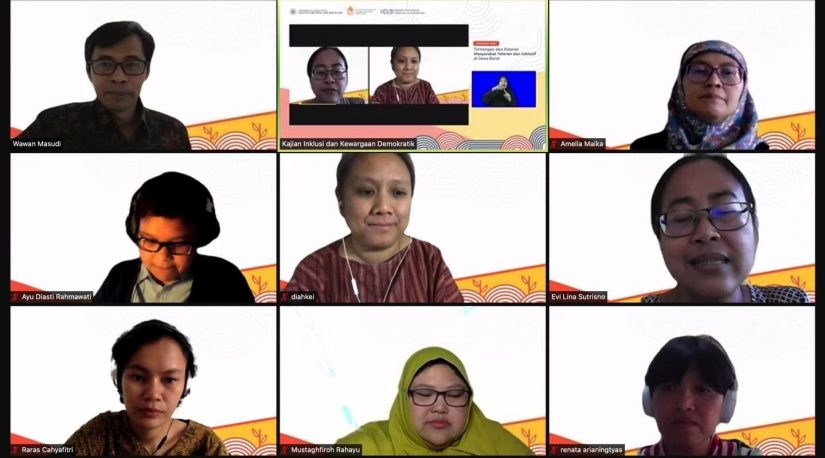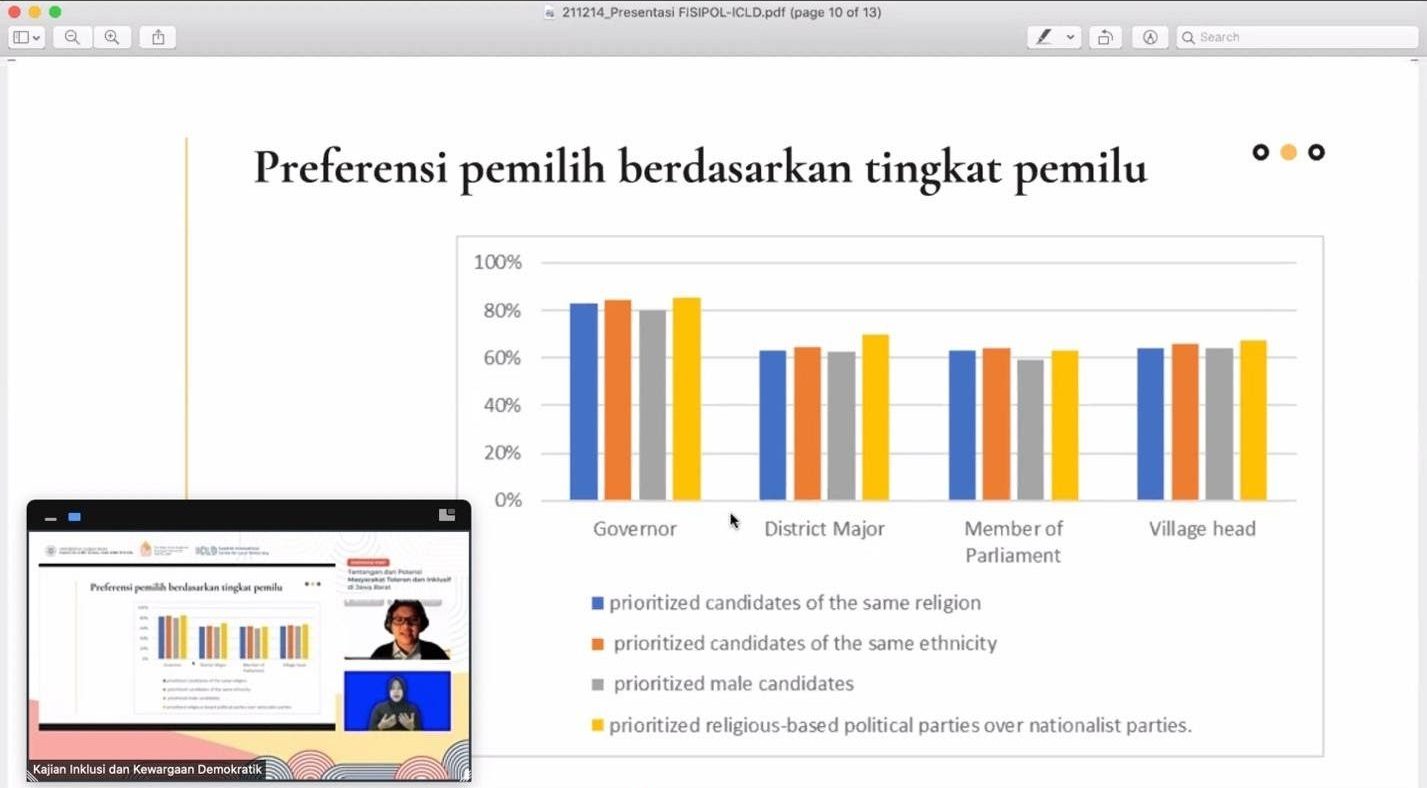
Yogyakarta, December 14th 2021─FISIPOL UGM’s Social Inclusion and Democratic Society Analysis Team held a research dissemination event titled “Challenges and Potential of Tolerant and Inclusive Society in West Java” on Tuesday (14/12). The event held through Zoom Meeting was attended by Dr. Wawan Mas’udi (Dean of FISIPOL UGM) as the head of the research team and two respondents which were Dr. Diah Kusumaningrum (FISIPOL UGM) and Renata Arianingtyas, MA (The Asia Foundation).
Since March 2020, FISIPOL UGM Social Inclusion and Democratic Society Analysis Team have been doing research which maps the challenges and potential of the creation of an inclusive and tolerant society in Indonesia with the help of International Center for Local Democracy (ICLD). The research was based on a concern for the development of democracy in Indonesia which still lags in its substantive aspect.
From the electoral aspect, there are a lot of non-democratic political practices that have been going on such as money politics. Furthermore, the fulfillment of citizen’s rights in relation to identity and individual expression is also still very problematic.
“In Indonesia, we are faced with tolerance problems that are harder to overcome as time goes by. From that concern, the research team tries to see the root of exclusivity or political practices that exclude other groups,” Wawan said.
West Java was chosen as the place for research because West Java is the province with the most population in Indonesia, which is 18.3% of Indonesia’s total population. This means that the development of tolerance and inclusion in West Java can speak a lot about the quality of equality in Indonesia’s democracy. In this context, the researcher would like to dig deeper about the conditions that are behind policies that are exclusive and intolerant.
“By understanding those conditions, hopefully researchers can contribute to the effort of using existing potentials to create a tolerant and inclusive government and society,” Wawan said.

The research shows that people who live in urban areas, are educated, and are satisfied with their economic condition tend to have a high social social tolerance and total tolerance. Meanwhile, related to the preference of leaders, more than a half of the survey respondents said that they prefer leaders who are a Muslim, who come from the dominant ethnic group, is a man, and who comes from religious political groups.
The findings show the morally framed exclusive policies that politicians can use to compete and gain electoral votes; the religious conservative organizations who have and are currently maintaining their access to power; voters who tend to be intolerant; and civil society organizations that can’t gain the votes of minority groups.
Ayu Diasti Rahmawati, a member of the research team, said that democratization at the national level isn’t necessarily followed by the same process at the subnational level. That is why innovations in inclusive work need to be created.
“Inclusive work also needs to include strategies such as intolerance education, voters education, movement organizing capacity building, etc,” she said.
